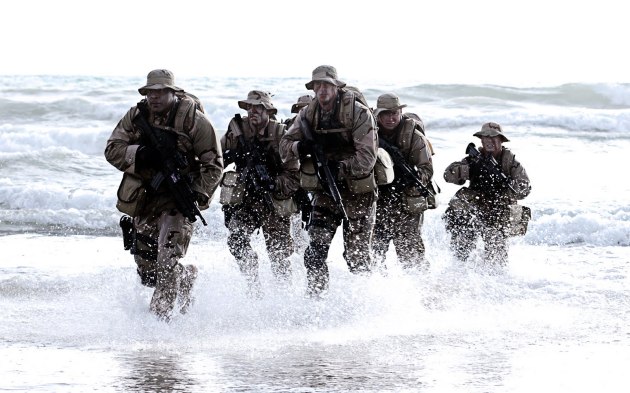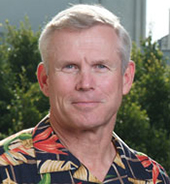Fear… and the Warrior
This essay was inspired by a story a journalist friend of mine shared with me about a panel he moderated with a group of military veterans. When he brought up the subject of fear in combat, there was a reluctance to talk about it, and he was chastised by one of their wives, who believed that even asking the question dishonored these heroes.
As you’ll read in the essay below, I see it differently. I use the masculine pronoun only because it avoids the awkward ‘he/she’ and ‘his/her.’ I know many courageous female warriors – in and out of uniform.
We often talk about a warrior’s courage; we admire him for it and we celebrate it. But how does one talk about courage—how does one examine its potential and its limits—without also talking about fear? For what is courage, but doing what needs to be done, in spite of one’s fears? This essay considers the complex relationship between the elite and experienced warrior, and his fear.
Young, bold, and audacious warriors often try to deny their fear as a form of weakness. They often idealize themselves and other bold warriors as knowing no fear. They see fear only as incapacitating, a weakness to be overcome in order to be great. I fell into that trap when I was younger, but I see things differently now.
I’ve come to realize that elite warriors have an intimate relationship with fear. They don’t deny their fear; rather they seek it out as a catalyst to make themselves stronger, wiser, more resilient. They push themselves beyond the edge of their comfort zones in search of that next challenge, the next higher mountain, the next opportunity to see what they’re made of. Each new challenge invariably involves confronting new anxieties and fears, which they must listen to, get to know and become intimate with, in order to survive, succeed, and perform at their best. Elite warriors are always developing and shaping their relationship with fear.
Elite warriors are wary of the audacious, the bold, the reckless who claim to know no fear, and brazenly attack every obstacle. These bold, usually young warriors need experienced warriors to guide them and help them to survive until they too can become ‘experienced’ and perhaps eventually ‘elite.’ Elite warriors are ready to act when bold and dangerous action is required, but they also know that discretion is often the better part of valor.
SEALs and SWCCs are among those elite warriors whose missions require that they confront, learn to live with, and manage fear, anxiety, and apprehension. To train for and succeed in the most challenging and unforgiving environments, they must make fear work FOR them, rather than hinder their performance.
Fear can be the warrior’s friend. Properly managed and applied, it can inspire focused attention to detailed and thorough preparation before a stressful event. Whether it be public speaking, a night parachute jump, or going into combat, all elite warriors have stories of success and even survival in unforgiving environments, after paying attention to that knot in the stomach that inspired them to take extra precautions, and prepare, prepare, prepare to perform at their best. Experienced warriors see “red flags” when there is no fear or anxiety before what should clearly be a stressful event.
Warriors, and especially elite warriors, have a relationship with fear that those who seek only safety, security, and comfort will never know. The more ‘elite’ the warrior, the more intimate and familiar he is with fear. Experience, self-knowledge and common sense help the elite warrior talk to and listen to his fear, and thereby to perform at his best. And this fear is not merely personal – the warrior is most often part of a team. Within a team, within a military unit, the elite warrior’s greatest fear is letting down his teammates and his team.
Within elite warrior cultures, fear of shame or dishonor has always been stronger than fear of injury or death.
A warrior’s fear often masquerades as performance anxiety. Will I meet the expectations and standards of my team and team mates? Will I be able to do my share or more, if/when the “kaka” hits the fan? Have I done all that I can do to be as ready as I can be, or have I missed something? Might a mistake, a bad decision, or a momentary lapse in focus get one of my buddies killed or injured, or result in mission failure? Will I dishonor myself, and be ashamed in front of my teammates? These are the fears that confront a warrior in his quiet moments, especially at the early stages of his development, while he is still accumulating experience, gaining self-confidence, and getting comfortable with his fear.
This intimate relationship to fear is not unique to elite military units; one finds it in any culture of men and women who individually or in teams work in challenging and unforgiving environments, to include rock climbers, mountaineers, big wave surfers, extreme skiers, competitive athletes, and even the best entrepreneurs and business leaders. Jim Collins, devotes a whole section of his most recent book, Great by Choice, to what he calls “productive paranoia,” explaining how the most successful business leaders are always on edge in anticipation of chaos or bad luck. “Productive paranoia” keeps them focused on keeping themselves and their businesses as alert and ready as they can be.
Elite warriors are not afraid to acknowledge their fear. Their relationship with their fear is like a good marriage – the warrior and his fear are indeed intimate and familiar with each other, and it is a very private relationship. Together they are more than the sum of their parts, and they each make the other better: the elite warrior’s experience, judgment, and wisdom temper and manage his primal fears, while the warrior’s fears focus his mind and energies, and tell him when to be careful, and when to pay very close attention. The warrior’s fear of failure, shame and dishonor, his fear of letting down his teammates helps inform good decisions that appropriately manage risk and achieve outcomes that serve the long term best interest of himself, his team and his nation.
About the Author
Bob Schoultz has an undergraduate degree in Philosophy from Stanford University and an MA in National Security Affairs from the Naval War College where he also served on the faculty as the first chair for Special Operations. Schoultz retired from the Navy in July 2005 as a captain after a 30 year career, nearly all in Naval Special Warfare. He commanded Navy Seals at all levels up to captain, lived overseas for four tours and participated in military contingency operations all over the world. His final tour in the Navy was at the Naval Academy where he completed a nine month fellowship with the Center for the Study of Professional Military Ethics and in his final two years was the director of Character Development and ultimately the director of Character and Leadership Development. He is also a certified instructor with the National Outdoor Leadership School.
Bob Schoultz will be will a guest and speaker at Mark Divine’s Unbeatable Mind Retreat December 4th – 6th.



Leave a Reply
You must be logged in to post a comment.